Origins
Obliveon Biography
The Evolution of Obliveon
Obliveon’s journey began in the heart of Montreal in January 1987, when three friends decided to turn their passion for music into something greater—a relentless drive to carve their own path in the underground metal scene. What started as a pastime quickly transformed into something more serious with the release of two early demos in March and September of that year. These demos resonated throughout the alternative metal circuit, gaining the band significant attention and laying the groundwork for what was to come.
It was in 1989, however, that Obliveon truly began to define their unique sound. With the arrival of a second guitarist and a new drummer, they released the iconic demo Fiction of Veracity, a work that marked a pivotal moment for the band. This release was more than just another demo—it was a declaration of their evolving identity. While many categorized them as a death metal band due to the heavy influence of the era, Obliveon always pushed beyond conventional boundaries, experimenting with soundscapes that set them apart from the rest of the genre.
As the years progressed, Obliveon’s sonic vision matured. With each release, they continued to expand the horizons of metal by infusing futuristic, cosmic atmospheres into their music. Their riffs became sharper, more mechanized, and their compositions took on a distinctly “Cybermetal” edge—a sound that became a signature element of their identity. Obliveon always maintained the raw intensity of their death metal origins, but their work became far more intricate, blending intricate rhythms, haunting melodies, and technical prowess to create a listening experience that was both powerful and thought-provoking.
In the summer of 1999, they released their fourth and final studio album, Carnivore Mothermouth. This album was the culmination of years of exploration and growth, pushing the band’s futuristic, progressive metal style to new heights. It showcased Obliveon’s ability to craft an immersive sound that felt both otherworldly and deeply connected to the visceral roots of metal. Carnivore Mothermouth served as both an evolution of their signature sound and a conclusion to that chapter of their career, further solidifying their place as pioneers within the cybermetal scene.
After four groundbreaking albums, Obliveon disbanded in 2002. But even in their absence, the impact of their music endured. The band reunited periodically for special performances, keeping their spirit alive in the hearts of fans. And in 2021, to the excitement of their loyal following, Obliveon officially reunited once more—not to relive past glories, but to create something new. With fresh material and the promise of an upcoming album, set for release in 2025, Obliveon is poised to once again push the boundaries of metal and remind the world why they’ve been considered trailblazers for decades.
Official Members:
- Martin Gagné: Guitar (since 1987)
- Alain Demers: Drums (since 1989)
- Pierre Rémillard: Guitar (since 1989)
- Bruno Bernier: Vocals (since 1994)
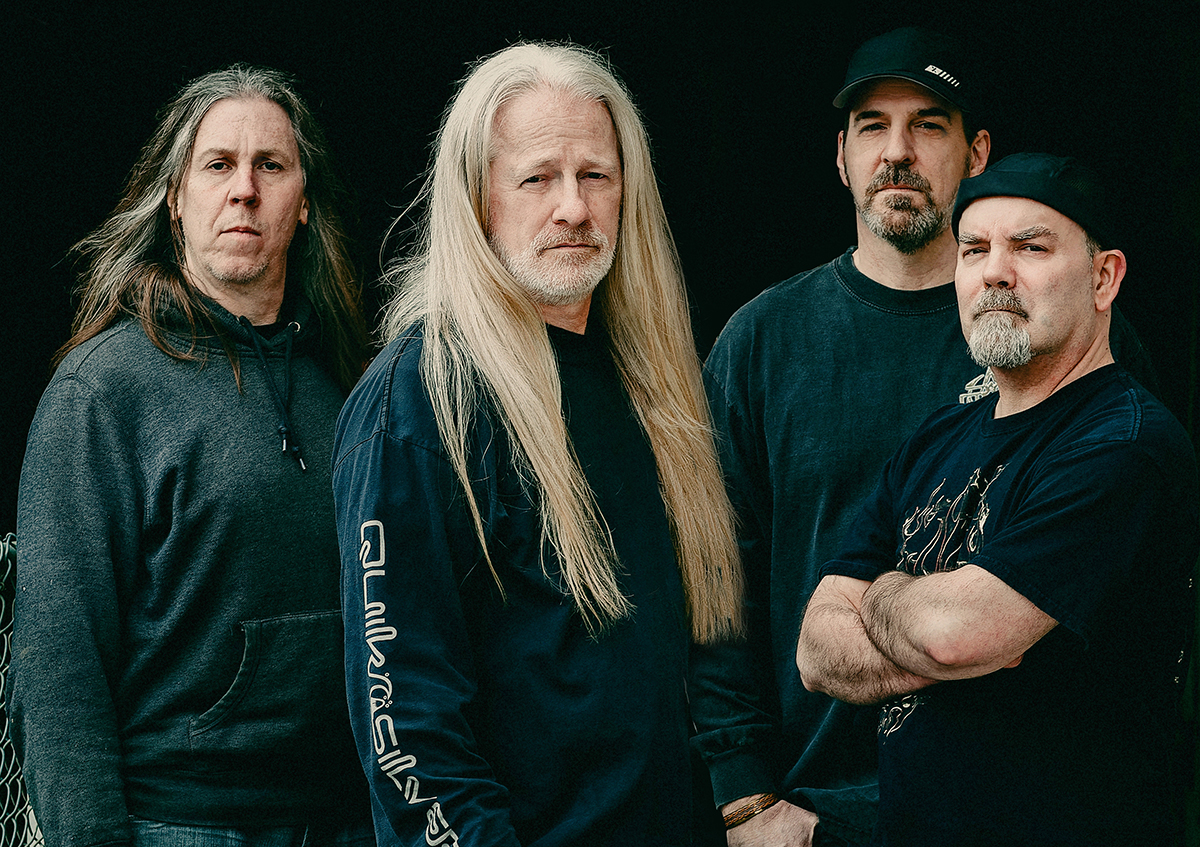
Former Members:
- Antoine Baril: Bass (2023-2025)
- Stéphane Picard: Bass, Vocals (1987-2021)
- Francis Giguère: Drums (1987-1989)
Discography:
- From This Day Forward (1990)
- Nemesis (1993)
- Cybervoid (1995)
- Carnivore Mothermouth (1999)
Other Releases:
- Oblivion (Demo, 1987)
- Demo #2 (Demo, 1987)
- Demo #3 (Demo, 1989)
- Fiction Of Veracity (Demo, 1989)
- Planet Claire (MCD, 1998)
- Greatest Pits (Compilation, 2002)
Videography:
- Dynamo (1994)
- Planet Claire (1998)
Obliveon’s story is far from over. Their legacy, shaped by decades of innovation and determination, continues to evolve. Whether you’ve been following them since the early days or have only recently discovered their cosmic, cybermetal sound, the future promises to be as intense and revolutionary as their past.
Stage Assaults: Upcoming Shows
Eternal Echoes: Obliveon News
-
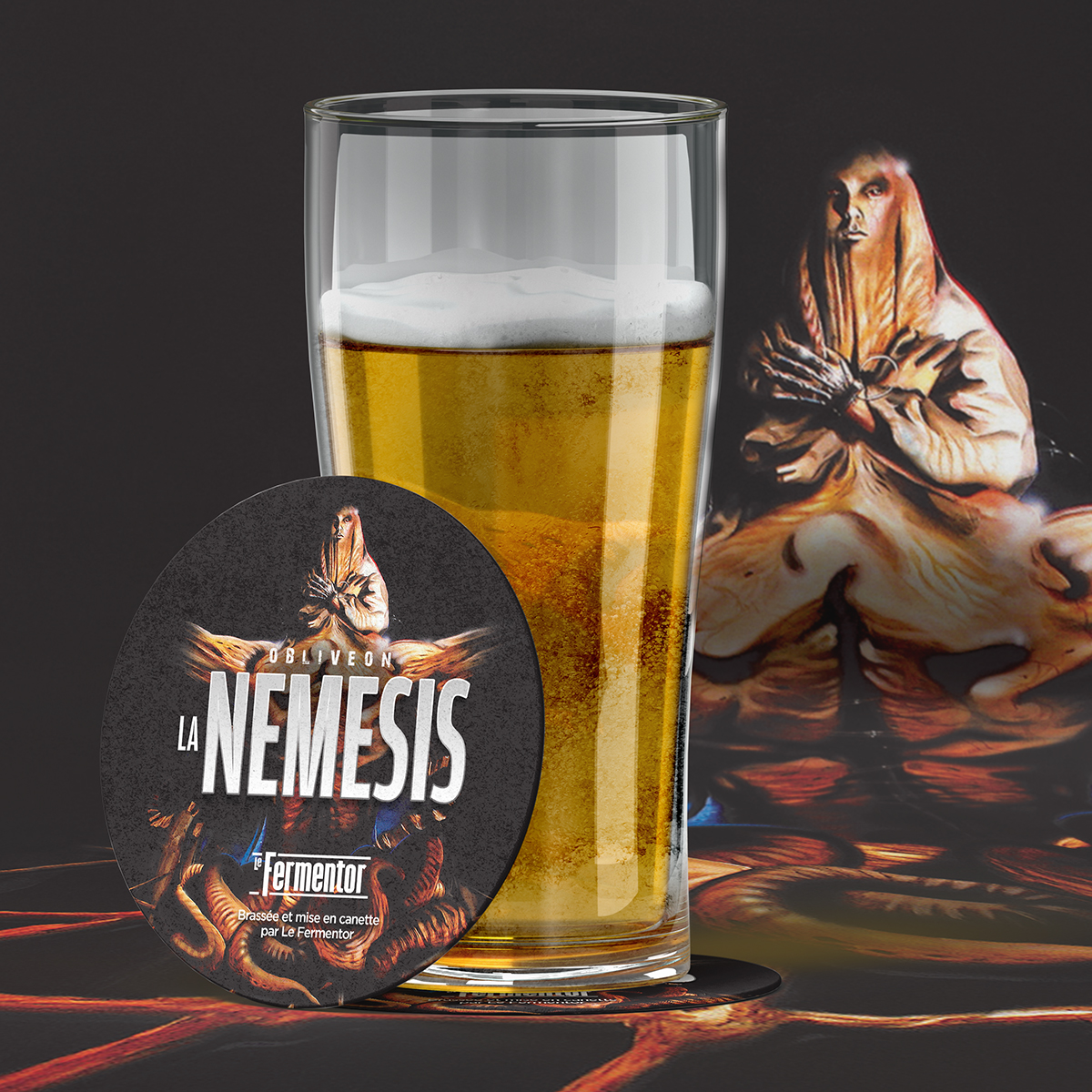 Official launch of La Nemesis Beer
January 6, 2025
Official launch of La Nemesis Beer
January 6, 2025
-
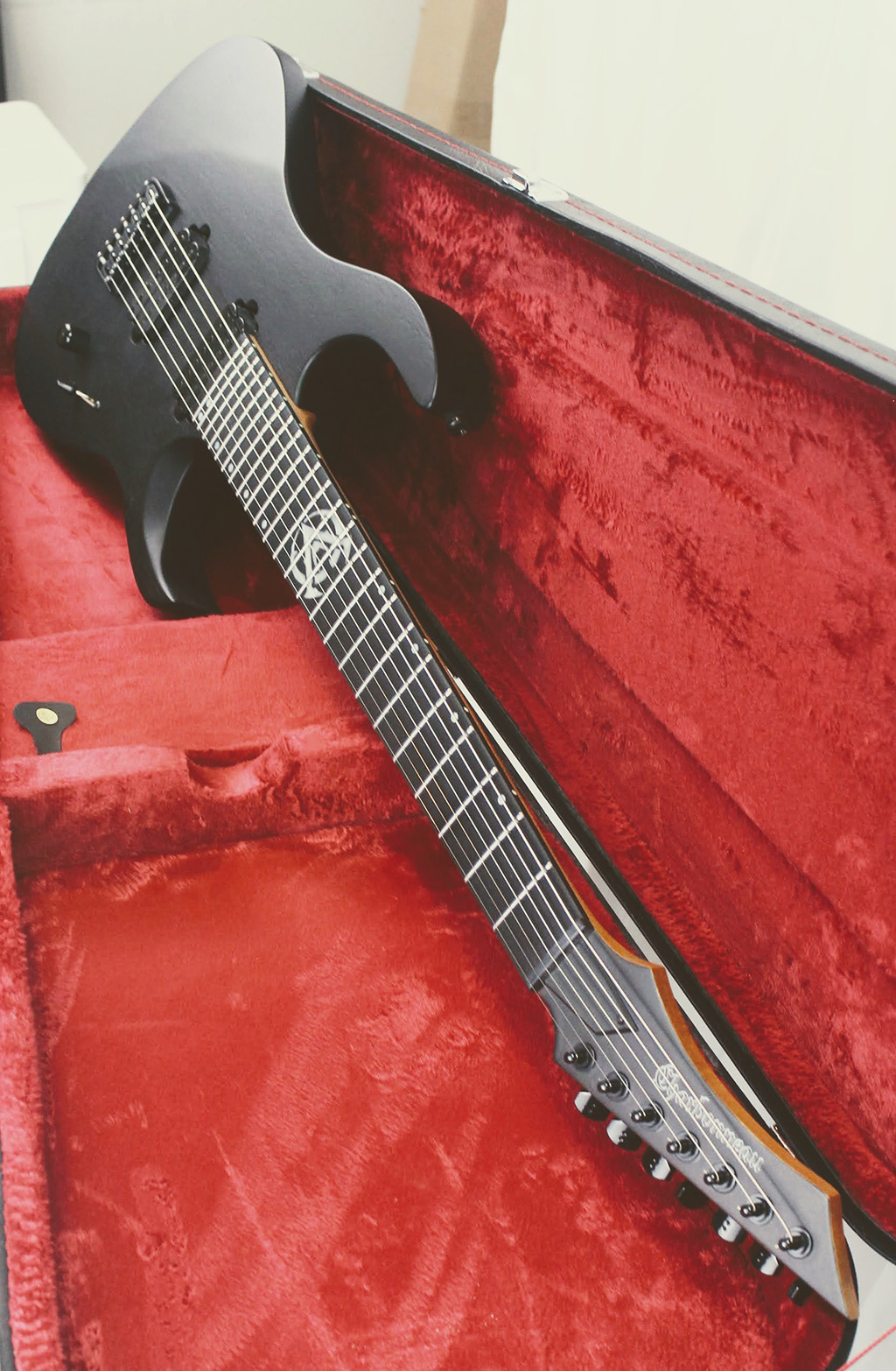 Obliveon Custom Kickstarter Guitar Alert
October 2, 2024
Obliveon Custom Kickstarter Guitar Alert
October 2, 2024
-
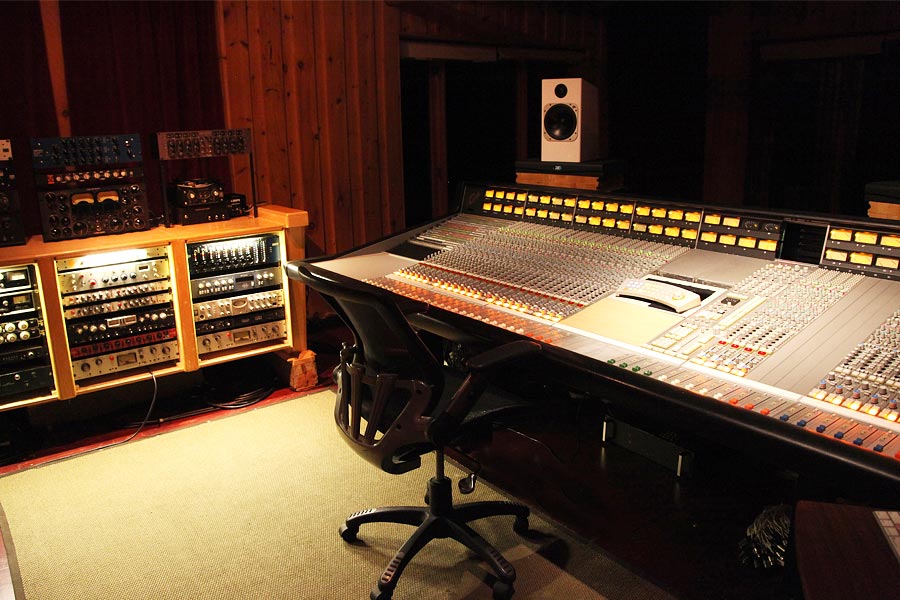 Studio Move Update
August 20, 2024
Studio Move Update
August 20, 2024
-
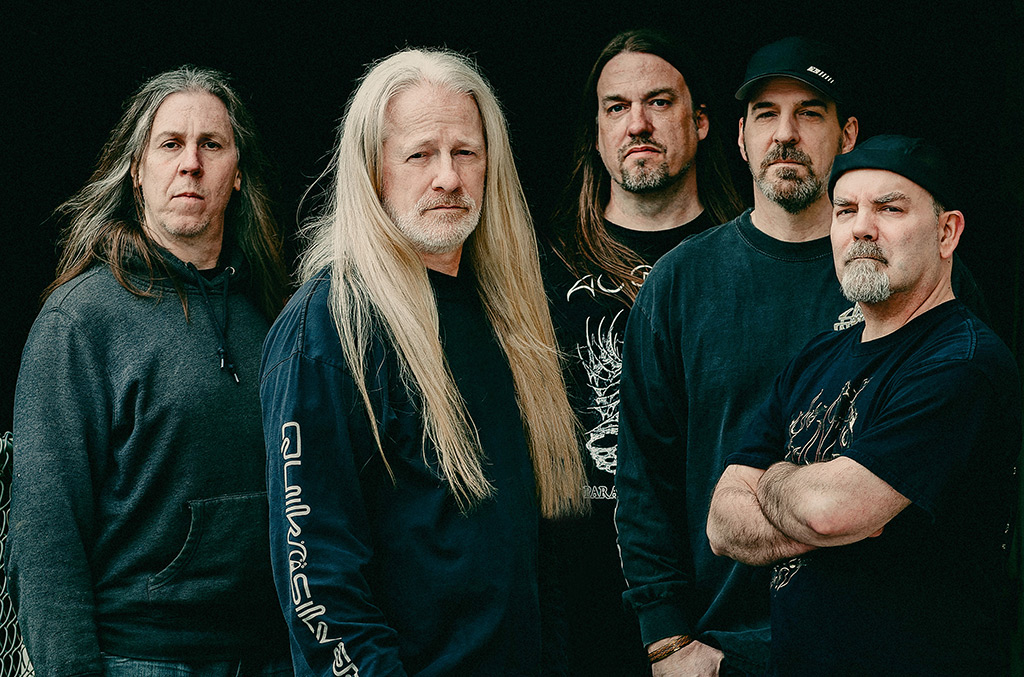 A heartfelt thank you to our amazing Fans
June 29, 2023
A heartfelt thank you to our amazing Fans
June 29, 2023
